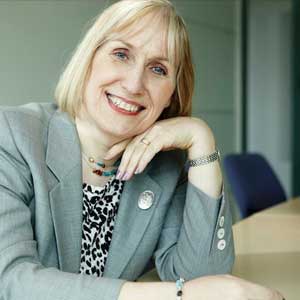
The Future of Microprocessors
Sophie Wilson
The Future of Microprocessors, considered from the perspective of instruction set design, and the two fundamental laws that define what has happened and limit what will happen.
You can probably work out which the laws are... (Moore's and ...)
Sophie Wilson co-designed the BBC Microcomputer, wrote BBC BASIC and co-designed the ARM processor to power Acorn's computers. Nowadays, the ARM processor powers virtually every mobile phone and tablet in the world – 50 billion sales of ARM powered chips to date.
Sophie is a Broadcom Fellow and Distinguished Engineer, a Fellow of the Royal Society, a Fellow of the Royal Academy of Engineering, a Fellow of the British Computer Society and a Fellow of the Women’s Engineering Society.
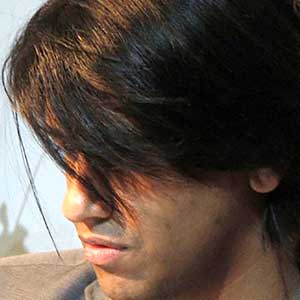
The Rise Of San Leodis and Silicon Shore: how to pretend you've turned your city into the next Silicon Valley
Imran Ali (@imran)
Imran Ali is a founding partner of CARBON:imagineering, an emerging technologies think tank.
Previously, Imran established the Technology Research team for Orange UK, was part of the advisory boards of O’Reilly’s ETel conference, mobile startup Treasuremytext and the eComm conference, as well as serving on the boards of startups ensembli and bmedi@.
Recently, Imran was appointed as conference director of the FutureEverything festival, following three successful years as founder of the LSx living lab.
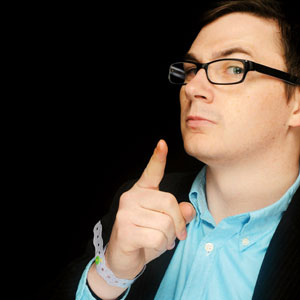
Reframing Web Design: The Process of Theatre Design
Luke Murphy-Wearmouth (@lurkmoophy)
As web designers, there are lessons we can learn and insights we can gain from stepping outside of the discipline and approaching our design process from a different angle. Over the past year or so Luke has been looking into the processes of other areas of design, picking them apart and drawing parallels to the work of web designers, in the hope that he’ll be able to improve his working process. While most people look at closely related disciplines like graphic, motion and print design, Luke took a closer look at the process of theatre design, an area he used to be involved in. What he discovered was that there are clear parallels between set, props, costume, lighting and audio design in the theatre and what we do on the web, and there are things we as web designers can potentially learn from the world of theatre.
Luke once designed and built a site on GeoCities. Since then, he’s designed and built things for folks including British Council, Microsoft, Hotels.com, O2, FT.com and Pearson. These days, he spends his time as a freelance web designer, developer and consultant, as co-founder and DJ at Early Doors Disco, organises events and conferences and occasionally chases ghosts through the streets of London.
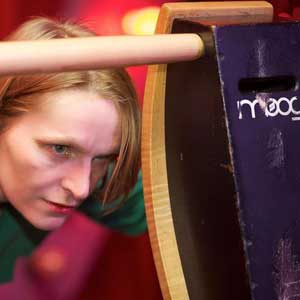
Steam-powered Techno
Sarah Angliss
Arguably, machine-inspired dance music didn’t originate in Detroit. Nor was it born in the experimental electronic art scene in Europe. It started centuries earlier, in the cotton mills of Lancashire where workers devised their own dances to imitate the machines around them. Similarly vocal manipulation techniques didn’t begin in the era of the vocoder or Autotune but in the seventeenth century, when singers resorted to the technologies of the time: architecture and the surgeon’s knife.
Sarah Angliss looks at some surprising pre-electric roots of electronic music as she shows there’s no single, authoritative history of electronic culture - it depends on story you choose to tell.
Evening performance: Spacedog ( http://www.spacedogmusic.com/ )
Sarah Angliss is a composer, automatist and historian of sound and the uncanny. Her unusual take on the history of technology has been seen and heard on BBC Radio 4, The Purcell Room, The Wellcome Collections, Wire Magazine, Port Eliot, The Last Tuesday Society, The Science Museum, dConstruct and beyond. Her talk at Wuthering Bytes includes findings from her collaborative work with Dr Caroline Radcliffe.
Sarah’s known for her singularly embodied performance which mixes theremin with the ensemble of automata she’s created to work with her on stage. She’s recently been commissioned to write music for the National Theatre and the British Film Institute and has been a guest on the Ghost Box and Gecophonic record labels. She’s currently mixing 19th century cams with todays’ motion capture techniques for an Arts Council England funded project at the Pervasive Media Studio, Bristol.
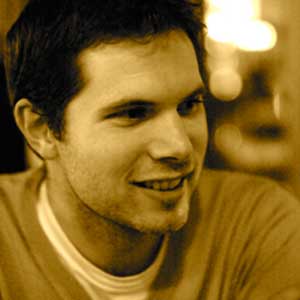
Dynamic Static Site Strategies
Phil Hawksworth (@philhawksworth)
Are we over-engineering? What is the real effort in developing, hosting and maintaining sites which have many moving parts? The cost of serving static sites has never been lower. And front-end development practices have never been richer. Couldn't we harness this better and make life simpler without dumbing down?
In this talk we'll explore some unexpected capabilities and characteristics of "static" sites. We'll look at ways to use emerging tools and services to create robust, high performance websites which can be more dynamic than some of their heavier and more costly brothers and sisters.
Phil is a JavaScript developer who has been developing web applications since the late 90s. These days in his role as a Technical Director at R/GA in London, working for clients like Nike, Beats By Dre and Google, he focuses on technical architectures, wrangling developers and designers, and banging on about things like unobtrusive JavaScript, open web standards and tasty browser shenanigans.
Some say that his Instagram feed contains more photos of cats than might be considered healthy for a grown man, but he's convinced that he doesn't have a problem.
Phil blogs at hawksworx.com and tweets @philhawksworth

Don't Spy on Us
Open Rights Group — Ruth Coustick-Deal (@openrightsgroup)
Since June 2013 the world was shocked by a continuous stream of revelations about US and UK security services' practices of mass surveillance on the population. We found out that GCHQ and NSA endanger our privacy online in myriad of ways, from recording entries on Facebook to weakening online encryption.
Open Rights Group formed a coalition with five other civil liberties' organisations to fight for the right to privacy and free expression. Together we are campaigning for surveillance reform under the banner 'Don't Spy On Us'. Ruth explains more about what the campaign is hoping to achieve and how you can help.
After a degree in English Literature, Ruth interned with ORG to work on developing their online digital rights magazine for Open Rights Group, introducing stories about protecting fanfiction and the ethics of hacktivsm. She now works at ORG on supporter engagement, fundraising and events, managing their national conference ORGCon.
She is passionate about free speech and the harm of censoring the Internet. Ruth has been involved in developing ORG's Blocked project, a tool that allows people to find out if any website is being blocked under the UK's filtering regime.
In her spare time she writes freelance articles on feminism and toy design.
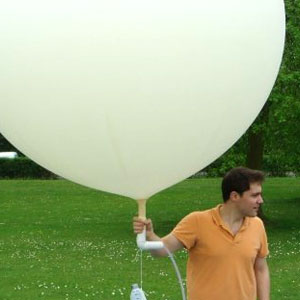
It's only Rocket Science.
James Macfarlane & Ed Moore — Airborne Engineering
A brief introduction to the history and technology of rocket engines followed by some photos and videos of recent rocket engine tests conducted in the UK by Airborne Engineering Limited. We will also describe how we use open source software to do rocket science and some of the hardware we've designed and built.
There will also be a live demo of a rocket engine firing during the event
James:
After working in academia and the Civil Service, James Macfarlane founded Airborne Engineering Limited in 2001 to design electronics for high altitude balloons. Meanwhile, James' activities as an amateur rocketeer got him noticed by the people at Reaction Engines (designers of the Skylon space plane) and in 2007 he built a test rig for them to carry out research on cutting-edge rocket designs. Airborne Engineering has since grown from a one person company to a successful employer of 7 people, based at a rocket test site in rural Buckinghamshire.
Ed:
Ed is an engineer at Airborne Engineering, where he works on rocket propulsion and instrumentation design, mostly for the Skylon spaceplane's SABRE engine. Before graduating he ran Cambridge University's Space-flight group, experimenting with rockets, high altitude balloons, and testing parachutes for a European Space Agency Mars-lander. He enjoys teaching science and engineering to young people.
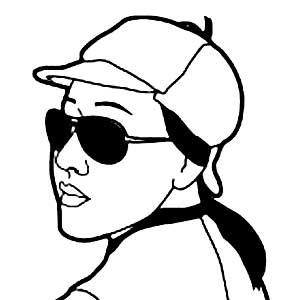
Numbers That Matter — Beyond snatch and grab ethnography, designing empathy and community into a product development life cycle.
Hwa Young Jung
Numbers that Matter was a collaborative project that sought to embed the values of Open from Community to Manufacture. We brought together Academics, companies and Hackers with an interest in wearable’s, open data and civic wellbeing. Together we designed and lived a product development process that valued the relationships and individuals we worked with, instead of rendering them invisible viewed only as a ‘target market’.
Hwa Young is an award winning multidisciplinary designer working in the arts, cultural and sciences, facilitating collaborative workshops and projects. She's been involved in grass-roots led community spaces, makers and artists in Manchester and the North for over five years - running hackathons, exhibitions, workshops and few laser cut trophies along the way. She is a co-director of Re-Dock, where she runs the St Helens Detective Club.
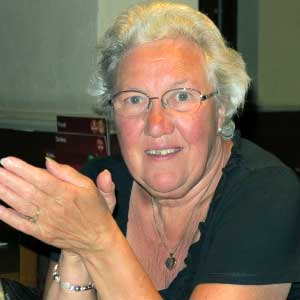
Computer Classics — Programming Computers in the 1960s
Ann Kilbey
Ann Kilbey worked for Elliot Computers Ltd at Borehamwood in the 1960s. She learnt to programme in machine code and worked on various defense contracts. From there she went to STC at Cockfosters where she worked on PDP8 machines writing programmes to ‘check out’ the correct functioning of the computer. Ann’s programming career ended when she and her husband decided to come north and take up farming!
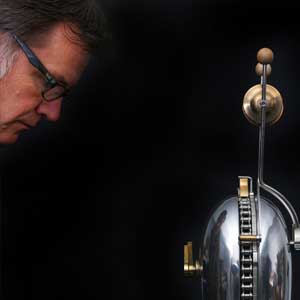
Giving a Clock the Time it Needed
Dan Morrison
When BLOTT WORKS was first conceived in 2011, we estimated three to six months to develop the first product and then another year or so to begin getting some income from it. Two years later, BLOTT ONE (Clock with timer) was finally ready to leave the workshop.
This talk tells the story of the development of this first product, providing a peek behind the workshop door to look at the evolution of the design, the skills that had to be acquired, and the materials and techniques that were finally employed in this most satisfying and unexpectedly slow honing of a unique timepiece.
Dan Morrison is founder of BLOTT WORKS, a product design studio based in the Calder Valley, which he established with fellow artist-engineer Andy Plant to hand-make limited-edition functional products.
BLOTT WORKS represents a pulling together of many of the threads that have made-up Dan’s working life to date: his path having taken him through the worlds of engineering design, of drums and drum-making, of performance and the performing arts, music and the sound arts, through to the worlds of computer science, of software and digital development. He currently works part-time as a Funeral Director which continues to give him a whole different perspective on life.